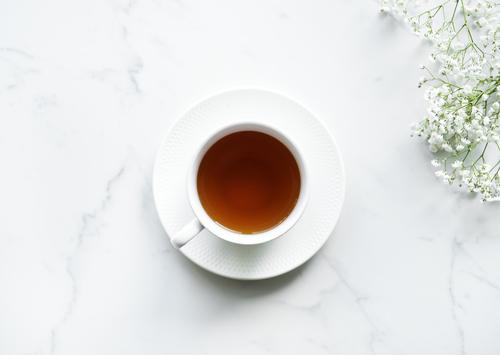Your body goes through huge changes during pregnancy. In fact, physical transformations, such as tender and swollen breasts with noticeably darker areolas, may be the first signs that you're pregnant. But what's going on inside your body is even more interesting.
The growing placenta in your uterus stimulates the release of hormones, such as estrogen and progesterone contributing to milk production along with the hormone prolactin. Active milk production starts in first-time mothers about 24 to 36 hours after giving birth, whereas you may have noticed colostrum secretion towards the end of your third trimester.
There may be a number of reasons why you may want to stop breast milk production: from low milk production due to existing medical issues to a loss of pregnancy. Let's ensure you're on the right path to lactation suppression! In this article, we will talk about some easy and safe ways for drying up breast milk without harming your overall health.
Some Practical Ways of Stopping Breast Milk Production
Before we share practical advice on how to stop milk production, you should know that every woman's body needs time for adjusting to the changes and reacting to active efforts of stopping lactation. Don't be surprised about mood swings because hormone levels will change as your milk production slows down.
Wondering how long does it take for breast milk to dry up after an abortion? This primarily depends on how old was your pregnancy. Typically, milk production stops 7-10 days after the procedure.
1. Home remedies
- Drink sage tea
Sage contains production-reducing estrogen in natural form. This may help to dry up breast milk over time. Shop for sage at a herbal store, brew it according to the directions, and add some milk or honey for flavor. You can also get sage tincture (sage oil mixed with alcohol) that is said to be more effective than sage tea for stopping lactation.

- Apply cold compresses or cabbage to your breasts
You can use gel ice packs to soothe your tender breasts. Wrap the ice packs in a cloth to prevent ice burn and apply it to your breasts for 20 minutes at a time throughout the day. Alternately, you can apply refrigerated cabbage leaves to your breasts as cabbage contains chemicals that can soothe inflammation. Just place them in your support bra until the leaves wither.
- Take vitamin B6
Vitamin B6 is known to reduce milk production by stopping the production of plasma prolactin. The recommended dose to suppress lactation entirely is 200 mg per day for 5 days. Note that consumption over the recommended limit can have side effects such as nerve damage and loss of sensation in your hands and feet. Opt for these vitamins only after consulting a specialist.
2. Professional recommendation for lactation suppression
- Wean gradually
If you want to know how to stop milk production without medical intervention, you can start weaning gradually. Begin by replacing 1 to 2 feedings daily so that your body gets the cue that you want to stop producing milk gradually. Stopping suddenly can lead to engorgement, or even mastitis wherein the milk ducts are blocked. The latter raises the risk of developing an infection.
Here's a schedule for weaning off over time:
Day 1: Pump your breasts for 5 minutes every 4 to 5 hours
Day 2: Pump your breasts for 5 minutes every 2 to 3 hours
Day 3-Day 7: Pump your breasts only to reduce pain and engorgement. If possible, pump for less than 3 minutes.
- Avoid nipple stimulation
Avoid stimulating your nipples when you're actively trying to suppress lactation. Your body will consider this as your baby's need to feed and will continue to release hormones that aid milk production.
- Opt for estrogen injections (severe cases only!)
Go for the estrogen injections only when natural remedies and gradual weaning is ineffective. For example, you're still feeling engorgement and tenderness in your breasts. Estrogen injections indeed suppress estrogen production in your body but they have also been reported to cause cancer in the long run.
Some More Tips for Suppressing Lactation
- Wear comfortable bras and nursing pads
Wear comfortable, loose enough bras to support your breasts without contributing to further inflammation. You can also use nursing pads to ensure nursing spots aren't visible.
- Take over-the-counter medicines
If your doctor gives you the green light, opt for over-the-counter medicines that contain acetaminophen or ibuprofen to relieve swelling and pain.
- Drink lots of water
Drink plenty of fluids, especially water, because dehydration gives your body a cue to increase milk production. Stay hydrated to ensure a stable milk supply and then wean gradually.
Final Thoughts
The tips outlined in this article are safe and easy ways to suppress lactation without aggravating the swelling and pain in your breasts. Whether you want to know how to stop milk production for personal reasons or because of an abortion or miscarriage, ensure that you take lactation suppression measures only after consulting with your doctor.